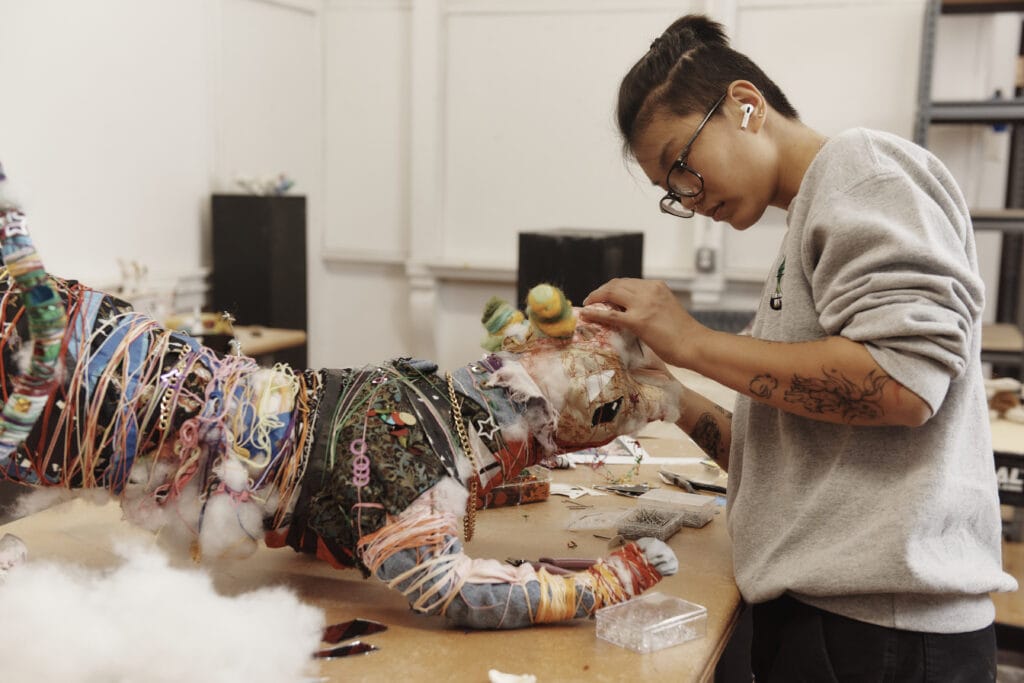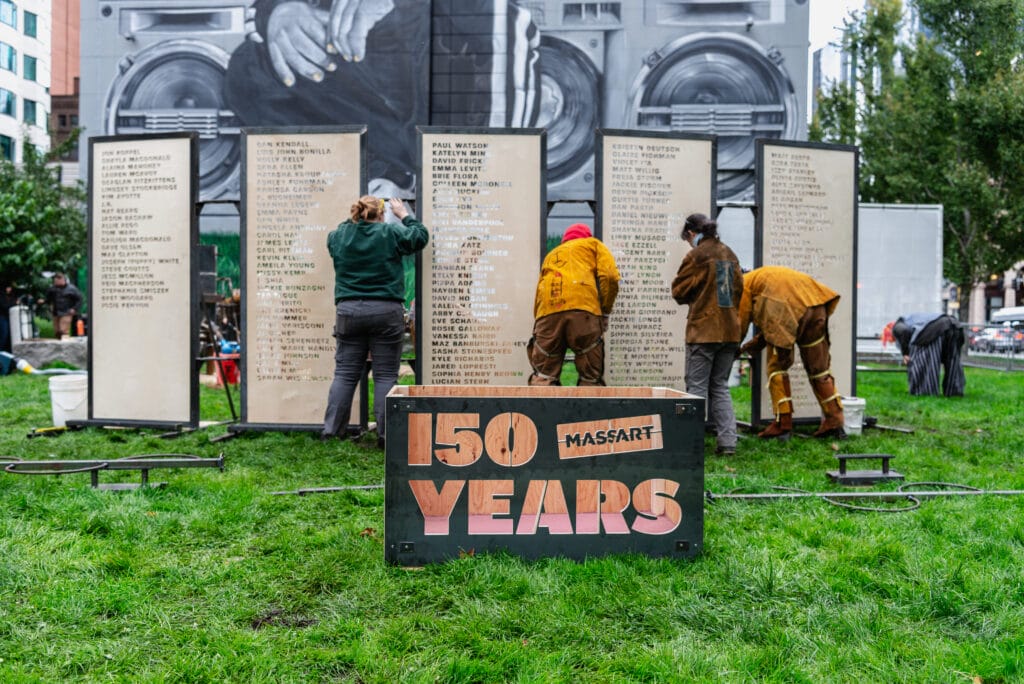Student Accessibility

MassArt is committed to making college a successful experience for all students, including those with documented disabilities.
In compliance with all regulations under the Americans with Disabilities Act (ADA) and subsequent Amendment Act (ADA-AA) MassArt assures the protection of your right to equal access to educational opportunities.
Student Accessibility Services ensures equal access for students with learning and psychiatric disabilities, neurodivergent students, and students with physical impairments. We partner with you and your faculty to provide you with equal opportunity to participate in programs, courses, services, and activities.
We will work with you to determine reasonable and necessary accommodations that can be made within the classroom and the studio. These accommodations may include additional time on examinations, rest breaks, note taking assistance, mobility assistance, or access to digital texts.
Download the Request for Accommodations FormHow to Request Accommodations
In order to secure accommodations at MassArt, please:
- Self-identify and submit documentation of your disability along with the Request for Accommodations Form.
- Provide documentation – with current functional limitations and recommendations for academic support – by your qualified practitioner. Any information you choose to share with us, on this form or in person, is kept confidential.
- Set an appointment to meet with a staff member from Student Accessibility to create a letter of accommodation for your instructors.
- Set up a meeting with your instructors to review the letter of accommodation, have them sign it, and return it back to ARC.
Tips for success
- Assume responsibility for testing procedures and notifying faculty
- Self-advocate and seek help regarding your academics, including meeting with faculty and advisors and utilizing resources such as tutors and success coaches in the ARC
- Follow the attendance policy outlined in each professor’s syllabus
- Meet MassArt’s graduation requirements
Policy
Student Accessibility Services works closely with the Office of Housing and Residence Life to provide housing accommodations to qualified students with disabilities. As in the classroom, reasonable accommodations within housing (including, but not limited to, accessible rooms, specific buildings or floors, single rooms, access to kitchens, service and emotional support animals) depend upon the nature and degree of severity of the documented disability. While the Americans with Disabilities Act of 1990 requires that priority be given to the specific methods requested by the student, it does not imply that a particular accommodation must be granted if it is deemed not reasonable and other suitable modifications are available. Please be advised that single rooms as an accommodation are reserved for individuals who document substantial needs and for whom living with a roommate is not a viable option.
Procedure
Students requesting housing accommodations should note the request on the Housing Application Form and comply with all housing deadlines. Students must also provide appropriate documentation from a medical or mental health provider to Student Accessibility Services by May 1 for students entering in the fall and December 1 for students entering in the spring semester. The provided documentation must establish the need for an accommodation and relates the current impact of the condition to the requested accommodation. Guidelines for documentation listed above.
Staff from Housing and Residence Life and Student Accessibility Services will review requests and meet with students to discuss the needs and options for accommodation; however, all requests, even with appropriate documentation, are not guaranteed. Students will be informed of the decision within 2 weeks of the meeting. Students requesting Services or Emotional Support Animals must follow the policies and procedures outlined in these guidelines.
All students residing on campus are required to purchase a meal plan. Students with allergies and dietary restrictions are encouraged to work with Student Accessibility Services and Sodexo to ensure that Sodexo’s staff are aware of the student’s needs and will prepare food accordingly. Students are encouraged to review our meal service provider’s dietary needs guidelines to learn more about accessing meals in the dining halls.
Incoming students must submit their request and accompanying documentation by May 1st for housing accommodations and July 1st for academic accommodations for the fall semester. Students entering MassArt in the spring semester should submit their requests by December 1st and January 10th, respectively.
Some classroom accommodations need additional time to be prepared including, but not limited to, assistive technology, physically accessible classrooms, interpreters, note takers and texts in alternative format. Students are encouraged to make these requests at the end of the prior semester to ensure staff are able to provide the requested accommodation at the beginning of the new semester. Students requesting housing accommodations should refer to the deadlines in the housing contract.
To identify the type of information and documentation necessary to the process for determining reasonable and appropriate accommodations, please refer to the following guidelines:
- Students must submit any prior assessment and/or evaluative report conducted by educational evaluators, medical professionals, mental health providers, etc. to establish the existence of a disability.
- Documentation must be current and relevant to the requested accommodation. Adult measures are preferred.
- An Individual Education Program (IEP) or 504 Plan may not provide sufficient information determine accommodations, but should be submitted if other information is not available.
- Professionals conducting assessments, rendering diagnoses, and making recommendations for appropriate accommodations must be qualified to do so. Information from these sources must be made on professional letterhead, dated, and signed.
- Prescriptions for medication is not appropriate documentation.
- Diagnostic providers should include information regarding the existing condition(s), presenting concerns, history of prior accommodations, current treatments, recommendation for accommodations in the post-secondary environment.
- Student Accessibility Services may request additional documentation if information provided is insufficient.
Documentation should be scanned and emailed to student.accessibility@massart.edu either using a scanner or by scanning the document(s) with your phone through a free application like Adobe Scan.
Appropriate accommodations allow students to be evaluated based on their true abilities and are designed to “level the playing field” for students with disabilities.
All students must learn the same material and are graded according to the same standards. Likewise, all students must comply with the behavioral standards set forth in the Community Standards. Colleges are not required to reduce or adjust the essential requirements of a course or program, conduct testing of learning disabilities, prepare or adhere to IEPs (Individual Education Plans), or to provide personal attendants or tutors.
Requests for accommodations are evaluated based on documentation supplied by students and in accordance with the Americans with Disabilities Act (ADA) and subsequent Amendment Act (ADAAA).









